
views
Become self-aware.
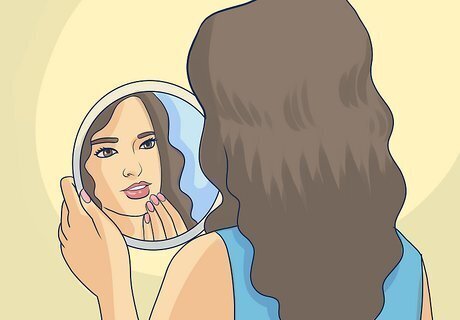
Start to analyze what makes you cautious or fearful. Maybe you feel shy all the time. Or you might get nervous and quiet in large social situations. Knowing what causes your shyness will help you to get over it faster. Also, realize that shyness is not a personality—it's just an obstacle that stands in your way. Don't just focus on what you need to improve. Think about your strengths too. Maybe you are withdrawn, but you're also really good at observing people and understanding them. You may also want to identify any specific areas that contribute to your shyness. For example, do you feel shy at informal or formal events? Does the age or status of the person you are speaking to influence your shyness?
Work on your strengths.
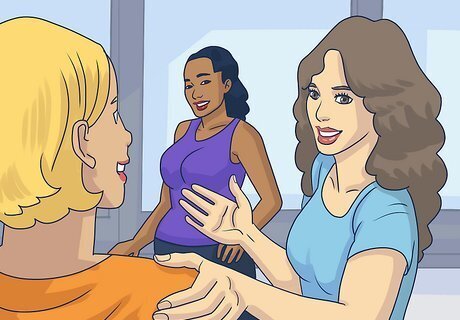
Once you know what you're good at, improve those skills. This can boost your self-esteem and make you more confident. For example, if you know that you're good at observing and understanding people, pay attention and hone this skill. Really start trying to empathize with people. This may make it easier to strike up a conversation with someone new.
Don't expect perfection.
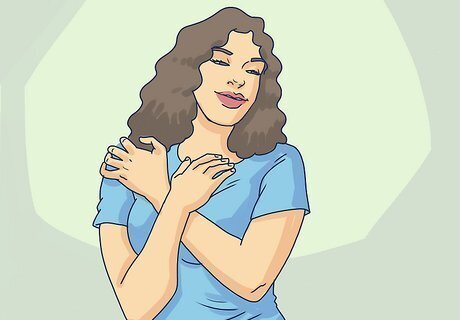
Remember that nobody is perfect. Don't let frustration impact your self-esteem. If left alone, this frustration can create insecurity and depression. Instead of focusing on areas you need to improve, acknowledge and appreciate what you are good at. Keep in mind that failure and self-consciousness are part of the learning process, so you are more likely to feel worse before you feel better.
Improve your self-image.
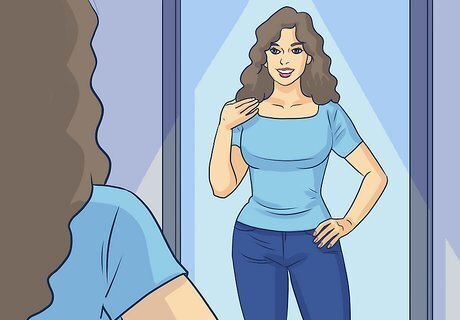
You don't have to fit in or be just like everyone else. It's easy to label yourself as shy and simply retreat from social interactions. Don't associate being shy with being an outcast, weird, or unusual. Instead, accept that you're unique. Learn to be comfortable in your own skin.
Use social media.

If you're naturally shy, work on your online presence. Use social media to get to know someone better. This isn't necessarily a replacement for social interaction. Instead, social media can help you feel more comfortable with the people you're interested in getting to know better. Try to find similar interests by sharing information about yourself. You may be surprised to find that people have similar interests or dislikes as you. Steer clear of social media forums that focus on shyness because they tend to be a place where people ruminate on their shyness rather than seeking ways to overcome shyness.
Do something you enjoy before a social interaction.
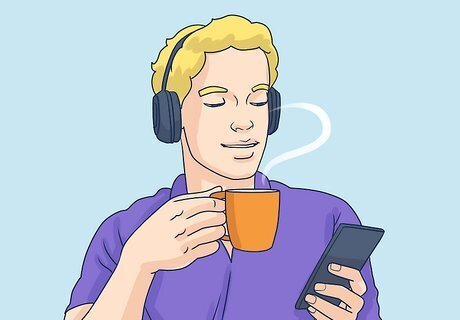
Read, listen to music, or grab some coffee before a big event. If you're anxious about going to a party or meeting, do something that you really enjoy right before the event. This can make you more curious and outgoing. Doing some form of aerobic exercise before a social event may also help to calm your nerves by burning of excess adrenaline.
Have a positive outlook.
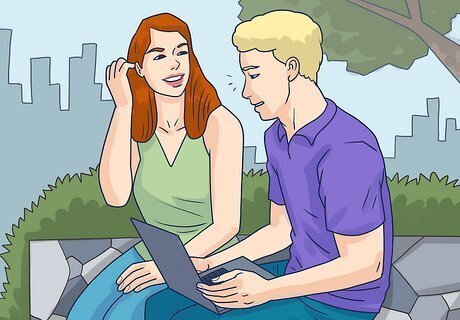
If you find yourself focusing on the negative, begin seeing the positives. This will also make you less critical of yourself and more accepting of others. For example, if you start to feel shy or nervous around someone new, look at it as a positive sign that you should meet someone new.
Have a game plan.
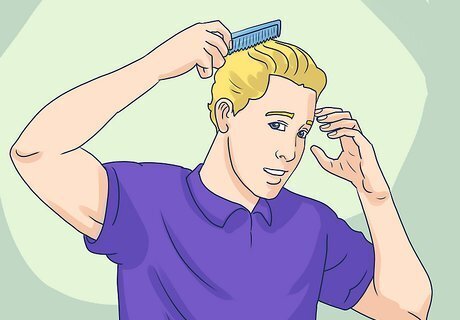
Think of small things you can do to be more confident. You can make an effort to make eye contact during conversations. You can also do something that you've never done before (eg. changing your hairstyle). This will make you feel and become bolder over a period of time, although it may seem strange and frightening at first. If you're having trouble coming up with a conversation starter, think of compliments you could give or questions you could ask. These will quickly get the other person talking.
Join a class or group.
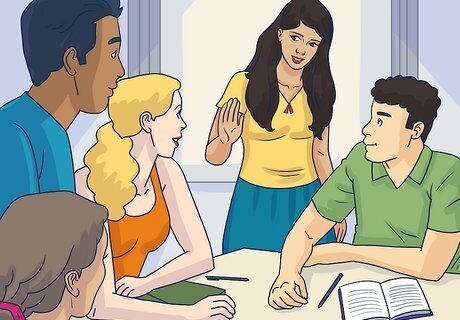
Enroll in a class to learn a new skill or join a group with similar interests. These are great opportunities to have regular interactions with strangers that could become friends. Expect it to be awkward at first, but stick with it. Practice talking with people in the group every week. It will get easier and easier. One great organization for overcoming shyness and gaining confidence as a public speaker is toastmasters.
Don't be afraid to talk about yourself.
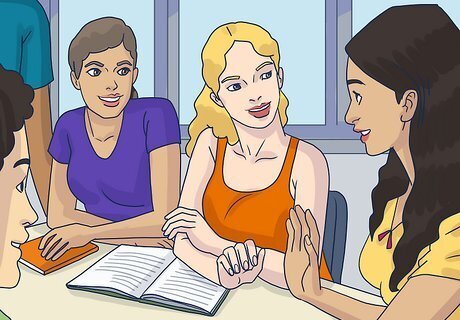
If you're not sure what to say, share something about your life. Allow yourself to be the interesting person that you are and don't be afraid to let others know what's been happening with you. Showing mutual interest in another person's life will also help spur a conversation on. With enough practice, a natural conversation will easily develop. Allowing yourself to be vulnerable in a conversation can be hard at first, but it will help you to create bonds with other people and it is a natural part of conversation.
Practice relaxation techniques.

Learn breathing techniques or exercise to release anxiety. Close your eyes and take deep breaths to clear your mind. Try to learn tips that will help you in social settings. For example, you could learn visualization techniques. Close your eyes and imagine being happy and confident in an imaged scenario. This can actually make you more confident, or at least relieve some of your fear.
Spend more time around people.
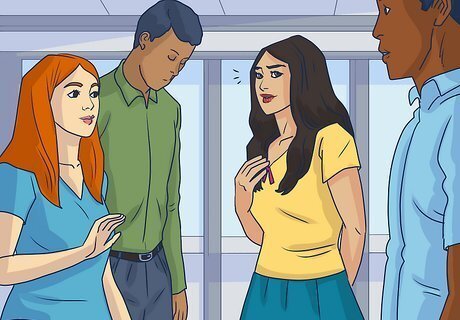
Don't wait for the perfect social situation to present itself. If you want to go from shy to confident, you first need to put yourself out there in order to meet people. Put yourself in social situations and practice speaking. Accept feeling awkward. Remember that becoming confident will take practice. Don't give up after one attempt at being bold. Repeated attempts will make it easier and easier to interact.
Do something for others.
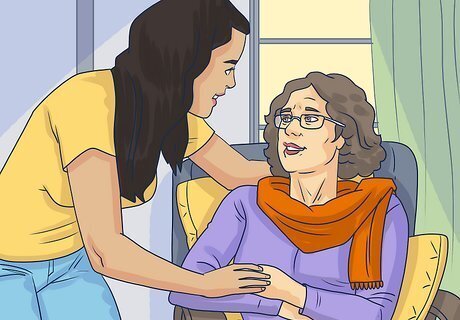
Distract yourself by thinking of other people. Take some time to help someone you know who needs it. You don't have to do something epic. Just spending time with a relative that's lonely or sharing dinner with a friend who needs help can empower you and make others feel better. You can also show an interest in other people and ask them open ended questions to help take the pressure off of you during conversations. People usually love to talk about themselves, so this is a good conversation strategy and it will make them feel good about themselves.
Adopt power poses.
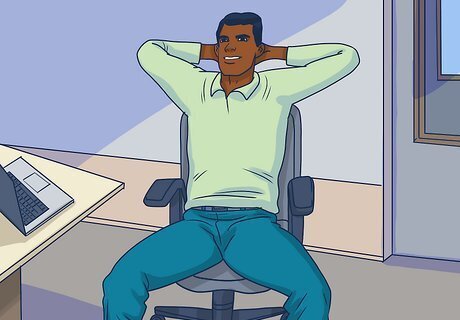
Standing in a power pose for 2 minutes can reduce your anxiety. Make eye contact, hold your head high, and pull your shoulders back. For example, sit in a chair and place your hands behind your head, lacing your fingers. Or stand with your legs slightly apart and place your hands on your waist. These are a couple of power poses.
Practice slow talk.

Talking slowly can help calm your nerves. Practice on your own by reading something out loud slowly and then extend this into your conversations with other people and any public speaking that you have to do. If you catch yourself speaking rapidly, then stop and take a deep breath before you continue.
Be yourself.
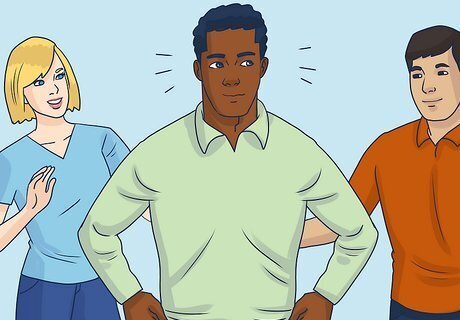
Genuinely express yourself by being authentically you. Don't feel like you have to be the most outgoing, spontaneous person in the room. You can express yourself, even if it's in a way that is quiet and subdued. Stop worrying about what others think. Your self-esteem is the most important way to boost confidence. Don't force yourself to be comfortable and confident in every situation. You may find that you can overcome cautiousness in certain social settings and not others. For example, you may favor small-group interaction, but really hate interacting at large clubs or parties.
Seek help from a therapist.
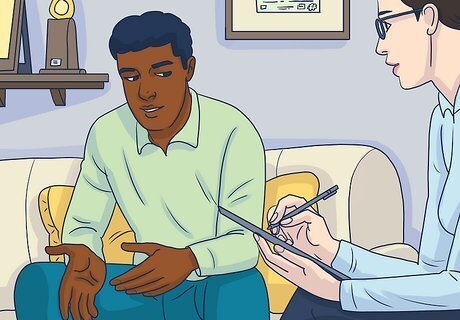
If your anxieties start affecting your everyday life, talk to someone. Shyness is a common problem for many people, but in some cases it may begin to interfere with your daily life. If this happens, then you may need to seek the help of a therapist. For example, if you avoid social events due to shyness, cannot effectively perform at school or work, or if you feel extremely anxious as a result of your shyness, then you may want to see a therapist for help.



















Comments
0 comment